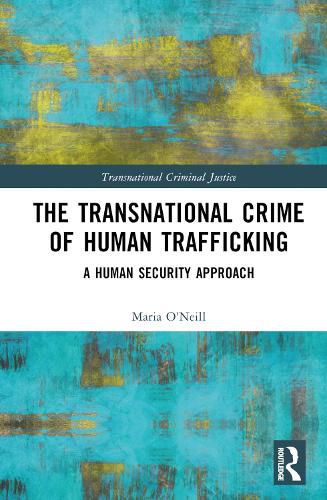Readings Newsletter
Become a Readings Member to make your shopping experience even easier.
Sign in or sign up for free!
You’re not far away from qualifying for FREE standard shipping within Australia
You’ve qualified for FREE standard shipping within Australia
The cart is loading…






Human trafficking is a multi-faceted crime. It suffers from definitional and implementation problems. One facet, the focus of this book, is the transnational nature of much of the crime, and the need for practitioners to operate across borders to combat it.
Europe has taken a distinctive approach to cross border law enforcement and judicial cooperation, which could be used as a model in other areas of the world. This publication examines these problems from a Council of Europe and European Union perspective, including the now post-Brexit UK. The UK has adopted a distinctive approach to legislating and operationalising its trafficking in human beings (THB) legal frameworks, also legislating for "slavery, servitude, forced and compulsory labour", resulting in distinctive results in internal UK law enforcement. It is argued here that this approach and the results should inform THB legislative and operational developments more widely. Further action in legal and operational frameworks is, however, clearly needed and the book advocates the adoption of a human security "freedom from fear" approach. Ultimately, the interaction of different legal frameworks, and different jurisdictions requires transnational practitioners to adopt a constructivist approach, as was adopted for the development of the internal EU area of freedom, security and justice.
The book will be of interest to academics, researchers and policy-makers working in the areas of transnational law, migration law, criminology and international relations.
$9.00 standard shipping within Australia
FREE standard shipping within Australia for orders over $100.00
Express & International shipping calculated at checkout
Human trafficking is a multi-faceted crime. It suffers from definitional and implementation problems. One facet, the focus of this book, is the transnational nature of much of the crime, and the need for practitioners to operate across borders to combat it.
Europe has taken a distinctive approach to cross border law enforcement and judicial cooperation, which could be used as a model in other areas of the world. This publication examines these problems from a Council of Europe and European Union perspective, including the now post-Brexit UK. The UK has adopted a distinctive approach to legislating and operationalising its trafficking in human beings (THB) legal frameworks, also legislating for "slavery, servitude, forced and compulsory labour", resulting in distinctive results in internal UK law enforcement. It is argued here that this approach and the results should inform THB legislative and operational developments more widely. Further action in legal and operational frameworks is, however, clearly needed and the book advocates the adoption of a human security "freedom from fear" approach. Ultimately, the interaction of different legal frameworks, and different jurisdictions requires transnational practitioners to adopt a constructivist approach, as was adopted for the development of the internal EU area of freedom, security and justice.
The book will be of interest to academics, researchers and policy-makers working in the areas of transnational law, migration law, criminology and international relations.